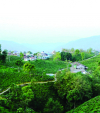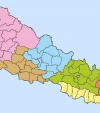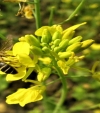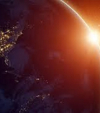
OR
What will become of natural world?
Published On: May 22, 2020 03:00 PM NPT By: Sujita Dhakal
Advantage nature. This is one thing that has happened by default amid the scourge of Covid-19 pandemic. It took us to be in global lockdown to allow the natural world we have degraded so much to heal itself to some extent. And the visuals of wild animals roaming our streets, vegetation reclaiming their spaces, skies clearing up offering spectacular views of mountains have been feast for our eyes as we shield ourselves indoors. Satellites have shown Carbon Dioxide emissions dropping deep even in major polluters like China and India.
Anxiety of surplus electricity
Published On: May 22, 2020 02:00 PM NPT By: Prabal Adhikari
It’s a bare fact that our hydropower projects are spilling during off-peak hours from May to November and it is triggered by either snowmelt runoff or monsoon precipitation. The situation of having electric power or energy to generate more than the domestic demand of the country, as of now, may be of two types: daily surplus or seasonal surplus. As per the simulation results based on certain assumptions of commissioning hydropower projects, Nepal will be in the state of seasonal surplus till the year 2027 from which Nepal will be a pure exporter of power on RoY (Round-the-Year) basis.
Let facts and reasons guide the border debate
Published On: May 22, 2020 12:36 PM NPT By: Mahabir Paudyal
The message to be spread is predetermined. Panelists seem to have been invited only to get it reinforced. The host begins by saying China is using Nepal. China is nobody’s friend. China is alone in the world. Nepal has released the new political map on China’s behest. Nepal’s claim on Lipulekh-Kalapani-Limpiyadhura region is groundless. The host shouts out loud, almost shrieks. When Nepali panelists start speaking, the host reiterates the same position. The Nepali panelists are literally given no time to make their points.
Big failure of small government
Published On: May 20, 2020 03:00 PM NPT By: Mariana Mazzucato and Giulio Quaggiotto
LONDON – Decades of privatization, outsourcing, and budget cuts in the name of “efficiency” have significantly hampered many governments’ responses to the COVID-19 crisis. At the same time, successful responses by other governments have shown that investments in core public-sector capabilities make all the difference in times of emergency. The countries that have handled the crisis well are those where the state maintains a productive relationship with value creators in society, by investing in critical capacities and designing private-sector contracts to serve the public interest.
Reawakening in Nepal for territory
Published On: May 20, 2020 02:18 PM NPT By: Devendra Gautam
The government of Nepal recently endorsed a new political map of Nepal by including the Limpiadhura region. This move came days after the government of India inaugurated a road linking India to Tibet of China through Lipulek, which forms part of the Limpiadhura region.
Democracies are better at managing crises
Published On: May 20, 2020 02:00 PM NPT By: Shlomo Ben-Ami
TEL AVIV – The COVID-19 crisis has become the latest front in the escalating clash of ideologies that has become a central feature of geopolitics in recent years. Representing authoritarianism is China, which has touted the success of its aggressive lockdown strategy in curbing the coronavirus’s spread. Representing democracy are a broad array of countries, some of which have responded far worse than others. So, which political system is better suited to managing crises?
Save the bees, support the beekeepers
Published On: May 19, 2020 06:20 PM NPT By: Dr Somsak Pipoppinyo
The global attention has been brought to the essential role bees and other pollinators play in keeping people and the planet healthy following a resolution adopted by the UN General Assembly in 2017 declaring May 20 as the “World Bee Day (WBD)”. The first observance of WBD was held on 20 May 2018 in Ljubljana, Republic of Slovenia. Each year, observation of WBD highlights the essential role bees and other pollinators play in keeping ecosystem healthy.
Deglobalization and its discontents
Published On: May 19, 2020 04:00 PM NPT By: Richard N Haass
NEW YORK – Increasing global interconnection—growing cross-border flows of people, goods, energy, emails, television and radio signals, data, drugs, terrorists, weapons, carbon dioxide, food, dollars, and, of course, viruses (both biological or software)—has been a defining feature of the modern world. The question, though, is whether globalization has peaked – and, if so, whether what follows is to be welcomed or resisted.
FDI post Covid-19
Published On: May 19, 2020 03:00 PM NPT By: Sunil KC
The ongoing COVID-19 crisis is changing the world drastically. The crisis has turned into an unbelievable loss of human lives and millions of people are being infected every day. Governments are putting their utmost efforts to control the pandemic; and global pharmaceutical companies as well as scientists are in the research mode to develop COVID-19 vaccine. At the same time, pandemic is leading world towards financial slowdown and international financial institutions such as Asian Development Bank (ADB) have estimated global cost of pandemic could range from USD 2.0 trillion to $ 4.1 trillion; equivalent loss of between 2.3 to 4.8 percent of global GDP. Nepal is acutely feeling the brunt.
Crises to come
Published On: May 19, 2020 02:00 PM NPT By: Manjeet Mishra
Crises have been a normal feature of human history. Nations have faced natural disasters, political and economic upheavals. The fact that they emerged stronger each time is a tribute to the amazing abilities of human imagination. The differentiator, however between progressive and regressive nations, has been the response each posed depending upon the gravity of the situation.



Just In
- Nepal and Vietnam could collaborate in promotion of agriculture and tourism business: DPM Shrestha
- Govt urges entrepreneurs to invest in IT sector to reap maximum benefits
- Chinese company Xiamen investing Rs 3 billion in assembling plant of electric vehicles in Nepal
- NEPSE inches up 0.07 points, while daily turnover inclines to Rs 2.95 billion
- Gandaki Province reports cases of forest fire at 467 locations
- Home ministry introduces online pass system to enter Singha Durbar
- MoLESS launches ‘Shramadhan Call Center’ to promptly address labor and employment issues
- Biratnagar High Court orders Krishna Das Giri to appear before court within one month in disciple rape case





_20200522123643.jpg)


















